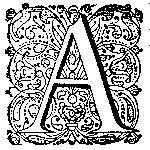Controlling the Flow of Information
The Soft Power Dimensions of Printing Privileges in the Seventeenth-Century Dutch Republic
DOI:
https://doi.org/10.51750/emlc20860Keywords:
printing privileges, publishing industry, cultural hegemony, intellectual property, knowledge infrastructureAbstract
This article examines the political dimensions of printing privileges in the seventeenth-century Dutch Republic, analysing their impact on the dissemination of information, the development of the printing industry, and the nature of published works. While Dutch printing privileges are often seen as legal tools primarily important for the local market, this essay shows that the ‘local’ cannot be isolated from intra- and pan-European connections. By selectively granting privileges, the authorities sought not only to control the flow of information, but also to actively shape it. Privileges thus served as instruments of power and as a means of transmitting cultural values and setting the political agenda. Analysing Dutch privileges from this perspective provides a more nuanced understanding of their application and purpose, illustrating their role as mechanisms of soft power that reinforced existing power structures and facilitated cultural hegemony.
Downloads

Published
Issue
Section
License
Copyright (c) 2024 Marius Buning

This work is licensed under a Creative Commons Attribution-NonCommercial 4.0 International License.





